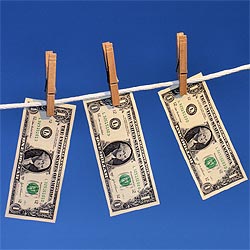The meaning of 'beneficial ownership' in the EU
Chris Hamblin, Editor, London, 12 May 2017

With all European Union countries planning to open the doors of their beneficial ownership registries, we look at the concept as found in the union's fourth money laundering directive.
According to article 3(6), ‘beneficial owner’ means the natural person(s) who ultimately own(s) or control(s) the customer and/or the natural person(s) on whose behalf a transaction or activity is being conducted. The EU appears to leave its definition of "beneficial owner" wide open, saying that it "shall at least" include the following.
First, it includes the natural person(s) who ultimately owns or controls a legal entity through direct or indirect ownership of a sufficient percentage of the shares or voting rights or ownership interest in that entity, perhaps through bearer shareholdings, or by other means of control but not through a company listed on a regulated market that is subject to disclosure requirements consistent with EU law. A shareholding of 25% plus one share or an ownership interest of more than 25% in the customer held by a natural person is a sure sign of direct ownership. A shareholding of 25% plus one share or an ownership interest of more than 25% in the customer held by a corporate entity, which is under the control of a natural person(s), or by multiple corporate entities, which are under the control of the same natural person(s), is an indication of indirect ownership. The directive leaves it open to EU countries to decide that a lower percentage may be an indication of ownership or control.
Secondly if, after having exhausted all possible means and as long as there are no grounds for suspicion, the bank in question has not identified any person who fits the above profile, or if there is any doubt that the person(s) identified are the beneficial owner(s), the natural person(s) who hold the position of senior managing official(s), it ought to keep records of the actions it has taken in an attempt to identify the beneficial owner.
Trusts
In the case of trusts, the beneficial owner is the settlor, the trustee(s), the protector (if any), the beneficiaries (or, if these have yet to be determined, the class of persons in whose main interest the legal arrangement works) or any other natural person exercising ultimate control over the trust by means of direct or indirect ownership or by other means. In the case of legal entities such as foundations and legal arrangements similar to trusts, it is whoever holds a position of the same kind.
The deadline for registries
The deadline for compliance with the registry-related parts of the directive, as with all other parts, is 26 June. Walkers, the international law firm, believes that the Irish registry will 'cheat' slightly by taking an extra three months to start functioning properly, proclaiming: "it is expected that corporates will have a three-month window, starting from 26 June, in which to file returns without being in breach of their statutory duty."
The Irish example
The requirement for corporate and legal entities ("companies") to hold their own beneficial ownership register was transposed into Irish law by Statutory Instrument No 560 of 2016. The following is a summary of the information that companies are required to hold under section 4 of that SI.
- The name, date of birth, nationality and residential addresses of each beneficial owner of it (the beneficial owner must be a natural person).
- A statement of the nature and extent of the interest held by each such beneficial owner.
- The date on which each natural person was entered into the register as a beneficial owner of it.
- The date on which each natural person who has ceased to be a beneficial owner of it ceased to be such an owner.
- If natural persons are identified, the names of senior managing officials of the company (including their dates of birth, nationalities and residential addresses) must be entered in the register, with the company storing records of the unsuccessful actions taken in order to identify the beneficial ownership.












